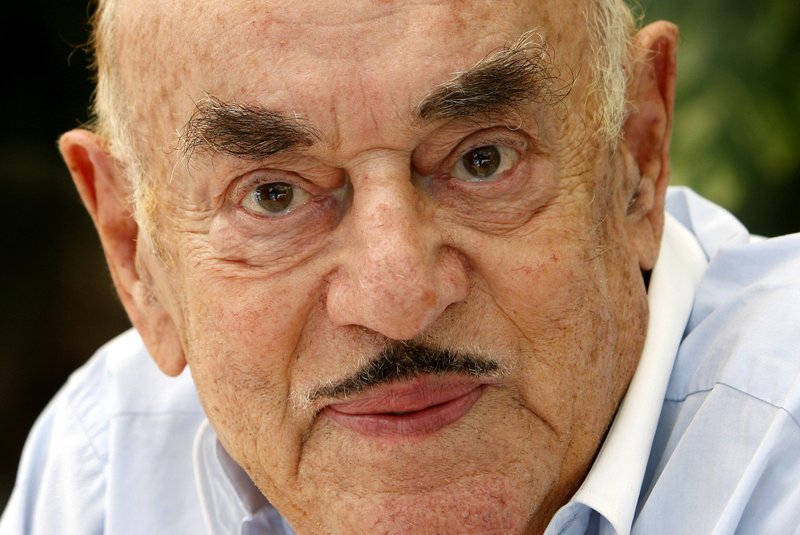BERLIN — Artur Brauner, a Polish-born Holocaust survivor who became one of post-World War II Germany’s most prominent film producers, died Sunday at age 100.
Brauner’s family said he died in Berlin, the German news agency dpa reported.
Culture Minister Monika Gruetters said Germany has lost one of the most important film producers of the post-war years, saying it was “a great gift for our country” that Brauner chose to make movies in Germany and support its democratic rebuilding. She also paid tribute to his efforts over the decades to ensure that the victims of the Holocaust were not forgotten.
Brauner produced hundreds of films. They included several 1960s revivals of the “Dr. Mabuse” crime movies and other hits such as “Girls in Uniform,” starring Romy Schneider.
Several of the films he produced had Holocaust theme, including Agnieszka Holland’s Golden Globe-winning “Europa Europa” about a boy in Nazi Germany joining the Hitler Youth to try to conceal the fact he is Jewish.
His “Babi Yar” in 2003 centered on the 1941 Nazi massacre of Jews in Ukraine, in which several of Brauner’s relatives were killed. Brauner was disappointed by the lack of box-office success for the film in Germany, saying the test of “whether the German cinema public has become politically more mature” had “clearly negative” results.
He also had a share in producing “The Garden of the Finzi-Continis,” set in Benito Mussolini’s Italy, which won the Oscar for best foreign-language movie in 1972.
Brauner described “Morituri,” a 1948 movie about a group of concentration camp inmates helped to escape by a Polish doctor near the end of the war, as his most important film. It received a negative reception at the time but Brauner called it “practically the first film that dealt with the issue of Nazi victims.”
Brauner believed his lighter post-war films matched the public’s taste.
“People wanted to be entertained after the terrible war, and I had a feeling for the needs of the audience,” he told the Funke newspaper group in 2018.
His persistence helped. He recalled driving 36 times through communist East Germany from Berlin to Munich in his rickety Volkswagen to persuade the actress Maria Schell to play the part of a penniless pregnant woman in the 1955 drama “The Rats,” one of his favorite films.
Brauner said there was no one in the movie business he would never work with again, though there were plenty he would like another chance to work with — among them the late director Fritz Lang, “if he would keep to my budget targets.”
In recent years, Brauner was worried by the rise of right-wing populism in Europe.
“I can only recommend to young people that they don’t fall into the clutches of populists around the world and stand up with all their might to nationalism, racism, anti-Semitism and xenophobia — now and not when it is already too late,” he the dpa news agency in 2018.
The son of a Jewish wood merchant, he was born as Abraham Brauner on Aug. 1, 1918, in the Polish city of Lodz. Brauner discovered his love for the cinema at an early age and often went straight from school to a screening. After finishing school in 1936, he joined an expedition of young documentary filmmakers to the Middle East, then studied in Lodz until Nazi Germany invaded Poland in 1939.
Brauner, his parents and four siblings fled east and survived the war.
His parents later emigrated to Israel. Brauner himself considered emigrating to the United States, but her briefly returned to Lodz, then moved to Berlin with his brother, Wolf.
In West Berlin, Brauner co-founded the Central Cinema Co., which went on to become one of Europe’s most important production firms, increasingly expanding into television in the 1960s.
Even as he turned 100, he was discussing scripts almost daily with his daughter Alice. “As soon as I am no longer around, I can give up working,” he said.
Brauner’s wife, Maria, whom he married in 1947, died in 2017. He is survived by their four children, Fela, Alice, Sammy and Henry.
(AP)












One Response
Not clear why this story belongs on a Chareidi news sight. Bizarre.